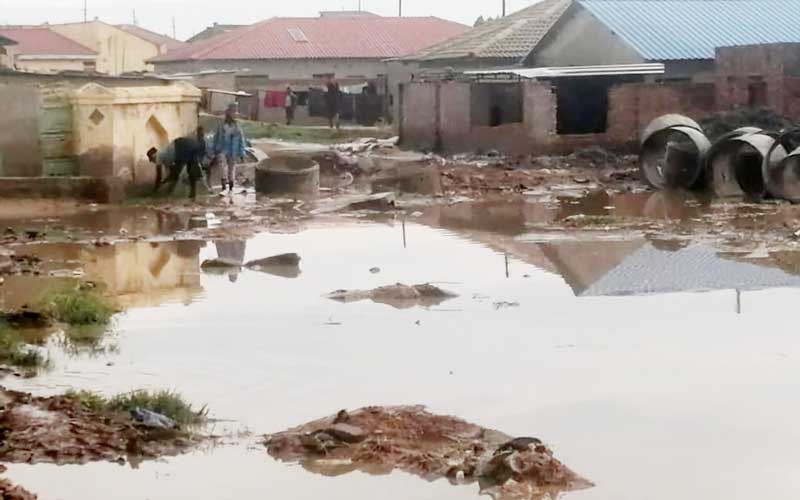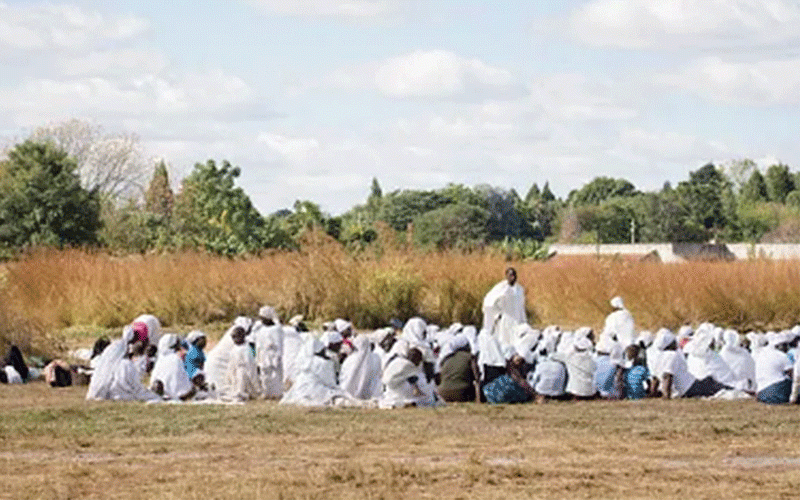
Heavy rains that pounded most parts of the country last week destroyed water and sanitation systems in Chitungwiza, sparking concerns that the ongoing cholera outbreak could worsen.
Apart from destroying the water systems, the torrential rains that fell from Wednesday night up to Friday morning left a trail of destruction in the town.
The poor drainage system has been blamed for the flash floods that left most roads impassable while water found its way into people’s homes.
People residing in low-lying areas were the most affected.
Chitungwiza Municipality on Friday urged residents living in low-lying areas to evacuate their houses.
“Chitungwiza Municipality would like to urge residents in areas prone to floods to seek shelter at Unit L Hall, St Adains Primary School, Chaminuka Primary School, Tatenda Tavern, Aquatic Complex and St Mary’s Community Hall,” the council said in a statement.
“The most affected areas include wetlands, low-lying areas and waterways.”
Residents in affected areas said they feared an increased cholera risk after their sources of water were either destroyed or flooded.
- Chitungwiza sewer infrastructure collapses
- Chitungwiza sewer infrastructure collapses
- LSU runs dry, students resort to open defecation
- Malawi cholera death toll crosses 1,300: health official
Keep Reading
Chitungwiza, just like most communities in the country, is battling a cholera outbreak.
Since the beginning of the cholera outbreak in February, the town has reported 744 suspected cases with 35 of these confirmed as cholera.
Chitungwiza has recorded eight confirmed deaths and five suspected deaths to date.
Most residents in the affected areas rely on deep wells as sources of water and use pit latrines for toilets since most of them are not connected to the council’s water system.
“Our well is flooded and one of our neighbour’s was destroyed by the floods leaving us with no safe source of water,” said Agatha Chiwetu of Unit N Extension.
“Some of the toilets, especially for those living in makeshift structures, were swept away.”
Chiwetu said they now fear that the cholera outbreak would worsen.
Another resident, who preferred to be called Mai Douglas who lives in Unit M Extension (Jambanja), said flash floods had become their daily experience whenever it rained heavily.
“Every time it rains, we are affected,” she said.
“Now there is a mixture of rain water and sewage flowing into our house.
“All our property is now wet and I have no idea when these things will dry up.
“I am afraid of diseases such as cholera, which may affect my kids.”
This publication established that communities in Unit N Extension, Unit K Extension, Unit A Extension, Masona and Jambanja in Unit M Extension, Unit G extension, Manyame Park Phase 5, St Mary’s and Zengeza 4 Extension were the most affected.
Investigations revealed that most of the residential stands in the affected areas are haphazard settlements that were facilitated by land barons without proper urban planning.
The cholera outbreak in Chitungwiza could also be exacerbated by the floods that have increased vulnerabilities, as residents in affected communities are compelled to move to evacuation and grapple with precarious living conditions.
Chitungwiza and Manyame Rural Residents Association director Marvelous Kumalo said floods were likely to raise the cholera risk in Chitungwiza and the rest of the country.
“The floods that we are currently experiencing might worsen our poor water, hygiene and sanitation situation,” Khumalo said.
“The cholera outbreak might be very difficult to deal with in the wake of floods hitting some parts of the country.
“Instead of authorities and stakeholders focusing most of their efforts towards mitigating the spread and effects of cholera, resources are now being overstretched to also cover threats related to flooding.
“A state of emergency must be declared on the cholera and flooding situation so that resources are mobilised to minimise the effects of these two challenges that we are facing.”
Chitungwiza public relations officer Tafadzwa Kachiko when contacted for comment referred this publication to the council’s director of Health services Hebert Chirowodza, who did not pick up calls yesterday.
However, Kachiko said they were yet to come up with the numbers of those affected, something they were working on with the Department of Civil Protection (DCP).
Efforts to contact the DCP officials were fruitless yesterday.
Zimbabwe Red Cross Society (ZRCS) secretary-general Elias Hwenga said they would respond whenever the DCP and the local authority reach out to them.
“We are a permanent member of the DCP at all levels and we will respond once there is an outbreak or even before an outbreak,” Hwenga said.
“We have community-based volunteers who reach out to at-risk communities with communication and community engagement cholera awareness messages so as to prevent the spread of the disease.”
Hwenga said ZRCS had been working with the DCP in the evacuation of affected families providing non-food items, including jerry cans, blankets and tents while raising cholera awareness.
He said his organisation had been implementing cholera awareness campaigns with support from International Federation of Red Cross and Red Crescent Societies in collaboration with the Health and Child Care ministry in Beitbridge and Gwanda districts in Matabeleland South province, Mutare Rural, Mutare Urban and Chimanimani districts in Manicaland province.
Zimbabwe has had two major historical cholera outbreaks, in 2008/2009 and in 2018.
The 2008/2009 outbreak, which resulted in 98 592 cases with 4 288 deaths making it the largest outbreak ever recorded in the country, started in Chitungwiza in August 2008.










